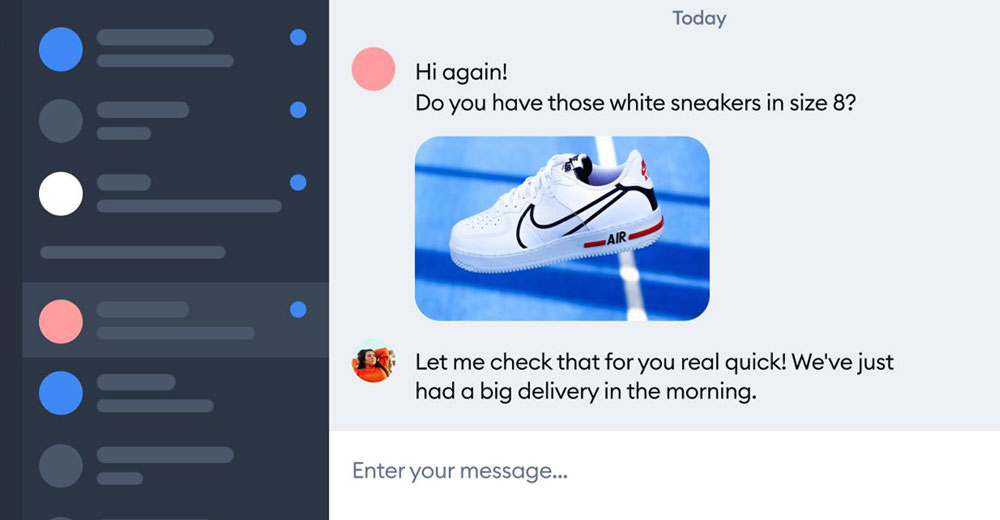Apple’s Safari browser may want to heed this bit of wisdom from Satchel Paige: “Don’t look back. Something may be gaining on you.” That something is Microsoft Edge.
According to the latest numbers from browser market watcher Statcounter, Edge, with a 9.54 percent global desktop market share, is breathing down the neck of Safari, which owns 9.84 percent of the browser pie.
However, both are far behind the market leader Google Chrome with its 65.38 market share.
Source: StatCounter Global Stats – Browser Market Share
A number of factors are contributing to Edge’s market gains. For example, growth in desktop usage, noted Greg Sterling, co-founder of Near Media, a news, commentary and analysis website. “We saw desktop usage grow during the pandemic,” he told TechNewsWorld.
Not only did the growing PC market juice Edge usage, but it has also benefited from steady improvements, observed Mark N. Vena, president and principal analyst of SmartTechResearch in San Jose, Calif. “Edge has materially improved in overall functionality, performance and extension flexibility over the past several years,” he told TechNewsWorld.
“It’s a compelling alternative to both Chrome and Safari,” he added.
Code Change for the Better
Microsoft’s decision to start using the Chromium codebase for the browser has also contributed to its popularity.
“Edge now blends legacy Internet Explorer support with Google support, arguably providing a more secure solution for those that need both,” Rob Enderle, president and principal analyst at the Enderle Group, an advisory services firm in Bend, Ore., told TechNewsWorld.
Falling in line with the leader in the market has helped Edge, agreed Ross Rubin, the principal analyst at Reticle Research, a consumer technology advisory firm in New York City. “Ever since Microsoft adopted the new code base, there has been much better compatibility with Chrome-optimized websites and with Chrome extensions,” he told TechNewsWorld.
He noted that Microsoft has also added some popular features, such as pen support, collections, and coupon support.
Edge has an edge over the market leader in another area. “Microsoft is telling a better story about privacy with Edge because its business model isn’t as dependent on data sharing as Google,” Rubin said. “Edge has more favorable privacy defaults than Chrome.”
“Edge has become a solid and fast browser,” added Kevin Krewell, a principal analyst in the San Jose, Calif. office of Tirias Research, a high-tech research and advisory firm.
“I think you are seeing more people use Edge rather than Chrome, as Chrome has become more bloated,” he told TechNewsWorld.
Built for Productivity
Edge may also be benefiting from how people are working these days. “With Edge, you can open [Microsoft] Office apps right from the Edge menu, putting your work-life front and center for easy access,” explained Liz Miller, vice president and a principal analyst with Constellation Research, a technology research and advisory firm in Cupertino, Calif.
If an organization is using Office 365, even Mac users might find the going easier using Edge because productivity apps like Word and Teams will be easier to reach, she maintained.
“As Edge further integrates into how people work, making the experience more about how an individual accesses everything from applications to information in a single pane of glass, expect to see more migration to Edge,” she told TechNewsWorld.
Another factor contributing to Edge’s rise in desktop market share may have nothing to do with the merits of the browser. “I am not sure that most people bother to change the browser from the one which is promoted on the platform they are using,” observed Michael Cherry, a Windows analyst with Directions On Microsoft, an independent IT advisory service in Kirkland, Wash. focused exclusively on Microsoft.
“Few people change browser or search engine defaults,” he told TechNewsWorld.
Safari Dissatisfaction
Edge may have also benefited from dissatisfaction with Safari among some users.
“Safari, particularly in the macOS area, has suffered from performance and bloat issues over the past few years,” Vena said.
“Recent updates have improved Safari’s reputation over the past few years, but it still suffers a somewhat negative reputation for desktop and mobile users,” he continued.
He added that Safari has lost some potential users by withdrawing from the Windows market.
“Safari has been buggy, with tales of redesigns that actually delivered fairly counterintuitive experiences,” Miller noted.
“Safari is the champ on mobile because it is there on your iPhone and iPad,” she added, “but note just how many people opt to download Chrome instead.”
Wonky Websites
Miller maintained that when work went mobile, people started to realize how limiting it could be to only be able to use extensions in the Apple App Store.
“For the security conscious, that could be a great thing, especially with Apple’s tough line on privacy and transparency,” she acknowledged, “but Safari is rarely described as user-friendly in terms of how a user wants to work or define their experience.”
For users who want access to all the tools available to them, Safari is too limiting, Miller contended.
There is also the issue of web development favoring Chromium browser optimization, she continued. “Sites can get wonky and unpredictable in rendering when they have been optimized for Chrome or Edge,” she explained.
Miller added that for users who want to sync preferences across platforms, Safari is immediately counted out.
Safari’s Strong Mobile Experience
While Safari’s lead over Edge is narrowing on the desktop, its margin is more comfortable in other areas. On all platforms, where Edge ranks fourth behind Firefox, Safari has a 19.84 percent share, and in the mobile and tablet market, Edge’s share isn’t in the top six.
“Safari will retain its lead on mobile because of the iPhone’s success and market share, which has actually grown,” Sterling said. “Edge simply won’t be adopted on mobile devices.”
Rubin added that Apple has also been a leader in enriching the browser experience on mobile devices. “Apple has been more aggressive in bringing the mobile version of Safari up to the standard of the desktop version,” he said.
“Google hasn’t been as aggressive there, in part, because you need a minimum level of performance to do that, and there are many Android handsets out there that can’t support that,” he explained.

























































